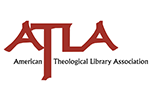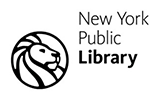Fr Georges Florovsky Papers
Subject: Florovsky, Georges, 1893-1979
Collection date(s): 1929-1979
Extent and forms of material: 89 cartons; correspondence, manuscripts, notes, pictures, postcards, and xeroxed papers.
Biographical data: Born in Russia into a highly educated clergy family, Fr Florovsky received his gymnasium and university education in Odessa. He taught philosophy at Odessa University until 1920, then left with his parents and sister to seek refuge in Bulgaria from the Russian Revolution. He resided in Sofia, then Prague, where he taught at the Russian Law Faculty and married Xenia Ivanovna Simonova, also from Russia. In 1926, Fr Florovsky moved to Paris, where he taught patristics at the St Sergius Theological Academy until the outbreak of war in Europe. He was ordained to the priesthood in 1932.
Fr Florovsky became active in ecumenical work in the mid-1930s, initially in the Orthodox-Anglican Fellowship of St Alban and St Sergius, then in the formational meetings of the ecumenical movement, mainly in Faith and Order, that after the war led to the establishment of the World Council of Churches (WCC). He spent the war years in Belgrade teaching in a Serbo-Russian gymnasium for boys and girls. Towards the war's end, he returned via Prague to Paris to take up teaching again at St Sergius Institute. In 1948, Fr Florovsky moved to the United States to teach dogmatic theology and patristics and become Dean at St Vladimir's Orthodox Theological Seminary in New York. From 1956 to 1964, he was Professor of Eastern Church History at Harvard University Divinity School. Upon retirement, Fr Florovsky was appointed Visiting Professor of Slavic Studies and Religion at Princeton University, serving from 1964 to 1972; he was Visiting Lecturer in Church History at Princeton Theological Seminary until his death in 1979.
Fr Florovsky continued high level activity in the ecumenical movement as a member of the Central Committee and the Executive Committee of the WCC until 1962, and as a member of the Commission on Faith and Order until the mid 1970's. He is the author of four books and over 350 other writings: essays, articles, book reviews, forewords, encyclopedia articles, homiletic writings, and sermons. His writings have been translated into a dozen languages. He became known for his pioneering studies in Patristics and in Russian religious thought and for his remarkable bibliographical erudition. Fr Florovsky's most praised work, still a classic, is The Ways of Russian Theology.
Language of material: English, Russian, Greek, and French
Scope and content: Collection spans the duration of the creator's career. Includes correspondence, notes, and personal materials from his early years as a student in Europe and later on as a scholar in the United States. Most of the collection consists of xeroxed papers from academic journals and theological literature that were created and annotated by Fr Florovsky.
Subject headings:
- Church History
- Ecumenical Movement
- National Council of Churches
- Pastoral Counseling
- Philosophy, Russian
- Religion--Philosophy
- St Sergius Theological Institute (Paris, France)
- St Vladimir's Orthodox Theological Seminary (Crestwood, N.Y.)
- Theological Education
- Ukraine--Church History
- World Council of Churches
System of arrangement: Aside from the correspondence, which is in chronological order, the rest of the collection is arranged into fourteen general subjects (see below). This finding aid was compiled by Irina Itina (a former librarian at St Vladimir's Seminary) and Anna Tsipenyuk. It was published in Georges Florovsky: Russian Intellectual & Orthodox Churchman, which was edited by Andrew Blane.
Collection arrangement:
- Correspondence
- Manuscripts and Papers
- Offprints and Xeroxes of Florovsky's Writings
- Florovsky Notes
- Photographs
- Academic Institutions, Religious Societies
- World Council of Churches
- Xeroxes from Books and Periodicals
- Xeroxes from Books and Periodicals with Florovsky Notations
- Newspaper, Magazine, Periodical Clippings
- Papers of Students and Others
- Information Bulletins
- Picture Postcards
- Miscellaneous




